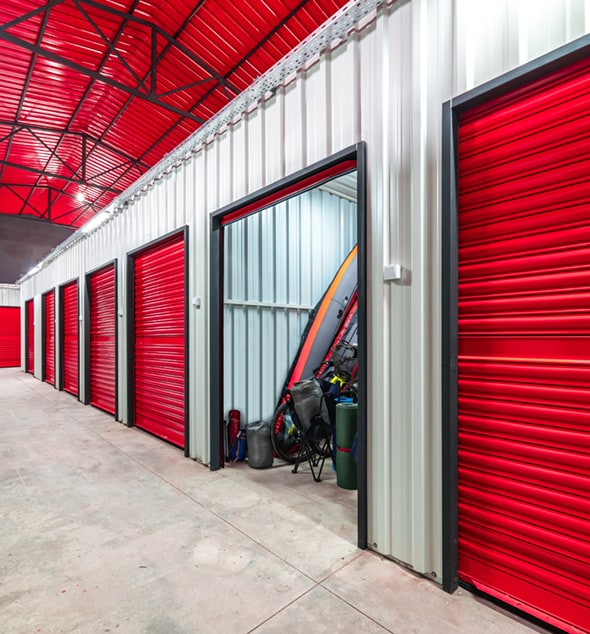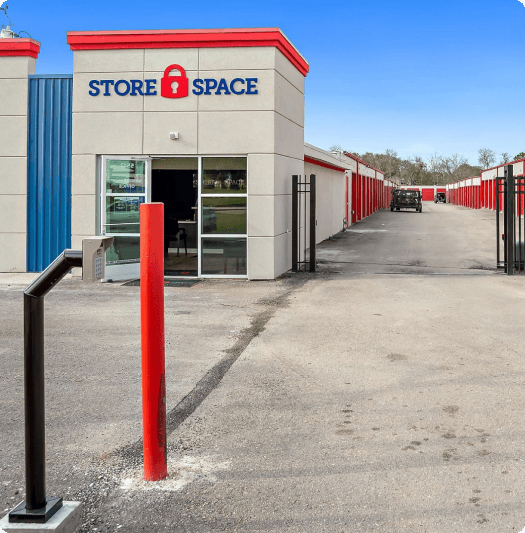How to Properly Store & Organize Your Hat Collection

The many hats we wear, both metaphorically and literally, do a lot to signify who we are and define our personality. A hard-plastic, yellow hat may allude to a particular career, while a black baseball hat with a white “NY” embroidered upon it may allude to a particular fandom. Furthermore, these hats often serve as an accessible means of introduction and connection when we are among friends waiting to be made. By serving all these functions, our hats do more than just protect our heads from the sun or adverse weather.
Knowing this, we must take the necessary precautions to store our hats properly. Before getting started, make sure you first identify what your storage needs are. Are you looking for the best way to display your baseball cap collection, searching for a means to store your fedoras out of sight, or trying to protect valuable cowboy hats as they enter long-term storage?
Either way, we have you covered with the perfect storage method for every type of hat. Keep reading to learn how to properly store your collection and keep your hats in pristine condition.
How to Store Baseball Hats

Baseball hats are one of the more popular hat types. These hats are normally characterized by having a curved bill and branded logo on their front. Baseball caps can either be adjustable or fitted for a particular size head.
Baseball hats are also relatively easy to store and display. If you are looking to display your collection within your home, you can purchase a hat rack or store them in a see-through hatbox. If you are looking to store your baseball caps out of sight, you can easily nest these caps within each other and arrange them in a dresser drawer or under-the-bed container.
For long-term storage, baseball hats should be stored in a protective hatbox. These hat boxes will prevent dust and debris from building up on your collection and damaging your favorite caps. For your most valuable hats, you should purchase archival hat boxes that are acid-free and reinforced with metal edges.
How to Store Cowboy Hats

When it comes to storing a cowboy hat, make sure you take the necessary precautions to protect the shape of each brim and crown. When traveling, protect your cowboy hats with a large hat carrier can.
The best hat cans will protect your cowboy hats from bumps, scrapes, dust and moisture. You can also use these hat cans to store cowboy hats within your home if you want to store your collection out-of-sight.
If you are looking to display your favorite cowboy hats, you can do so in several ways. One of the boldest ways to display your hats is by hanging them on a wall. Suddenly, everyone who visits your home knows that much more about you. Talk about a statement piece. However, if you are looking to store your cowboy hat long-term, you should only do so with a hat storage can. Hat cans are a versatile must-have when it comes to storing western hats. They make travel easy, and they are also a way to protect your hat at home when you’re not wearing it, or when you’re storing them long-term in a storage unit.
How to Store Large Brim Hats
If you are looking to store other large brim hats, you can follow the tips listed above for storing western hats. Large sun hats, derby hats and other hats with vulnerable brims should always be stored carefully when entering long-term storage. Hat Boxes USA offers several storage options for over-sized hats, while hat cans are almost exclusively made for western hats.
You can easily display large brim hats within your home by using hat hooks, clothespins or a collage-style hat rack.
How to Store Fedora Hats

If you have spent a lot of money on your fedora collection, you will certainly want to protect it and keep every hat in pristine condition. To achieve this during long-term storage, you should always keep fedoras in a protective hatbox.
While fedoras should never be stored directly on a surface (the weight and pressure can deform the fedora’s shape), there are still several stylish ways to display your fedoras within your home. Hat stands are a great way to simultaneously display your fedoras and protect them. In addition, fedora owners can also utilize hat racks and other hanging methods to display their fedoras on a wall.
Best Hat Racks to Display Your Hat Collection
There are several different styles of hat racks available on the market. Some of these hat racks are designed to hang over a closet door, while others are free-standing. Here are a few of our favorite hat rack options:
TJUSIG Hat Hanger from Ikea
We like this hat rack from Ikea for its minimalistic style and versatility. This hat hanger will be best used when hung near a front door to store commonly worn hats. While this hat hanger won’t be suitable for luxury baseball caps or expensive cowboy hats, for everyday use, this hat hanger is a must.
CAPRACK 18
This Amazon best seller offers affordable and effective hat storage. Best used for baseball caps, the CAPRACK 18 can store up to 18 hats and features two hat straps that can be used over a door in two different rooms.
Adesso Arbor Coat Rack
If you are looking for a standing rack to store hats and jackets, you should check out the Adesso Arbor Coat Rack. This standing rack features 5 staggered hooks that are essential for a chic, sculptured look. These hooks can be used to hang jackets, hats and scarves.
How to Store Hats in your Closet

There are a number of ways to properly store hats in your closet. If you are looking to store your collection in a manner that is easily accessible, you can do so with an over-the-door hat rack or in a dresser drawer. If you are looking to store your hats long-term or out of sight, you should purchase a protective hatbox or storage container that will keep your collection shielded from light, debris, moisture and damage.
How to Organize Hats
Your hat collection can be easily organized in a few steps. The first step is to divide your collection into the various types of hats you own. It will be easier to store your baseball caps in one place and your bulky cowboy hats in another. Once separated, your baseball caps can be stored using a hat rack, display box, or empty dresser drawer. Your cowboy hats can be stored and organized in a protective hat can and your remaining hats can be displayed on a wall or organized in a hatbox. If you collect hats, check out our guide on collectible storage.
FAQs
Q: How should hats be stored?
A: The proper method for storing your hat collection will depend upon a variety of variables including the value, size and variety of your collection. If you are looking to store your collection long-term, you will always want to store your various baseball caps, cowboy hats or fedoras in protective hat boxes or hat cans. If you are looking to display your collection within your home, an over-the-door hat rack or standing rack will work just fine.
Q: How do you protect your hat from dust?
A: The best way to protect a hat from dust is to store it in a protective hatbox. In addition, you can also hang hats or store them in a see-through case to cut down on dust and display your collection.
Q: How do you store bucket hats?
A: If you are storing your bucket hats on a shelf, it is important to flip them upside down so the brims are protected. If you store your bucket hat on its brim for a long period of time, the pressure could cause irreversible damage.
Hopefully, this guide has provided you with inspiration to properly store, organize and display your hat collection. If you are searching for more space to store your collection, we can help with that as well.
Store Space is equipped with climate-controlled storage units and other suitable hat storage solutions. To find the Store Space storage facility nearest to you, use our storage location finder.
We care about protecting your collections!







